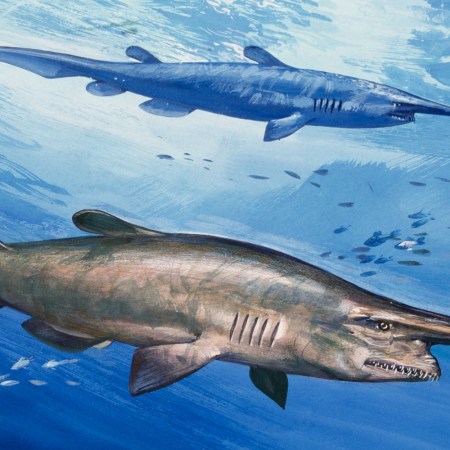It might be time to rethink that time-tested dating koan: “There are plenty of other fish in the sea.”
Because as it turns out, there are not.
According to the Economist, “32% of the world’s fish stocks were being exploited beyond their sustainable limit [as of 2013], up from 10% in the 1970s.” How did we get here? Fish taste great, represent the healthiest mass-consumed animal protein, and are easier to source and farm than other animals: farming requires land and resources; fishing requires a boat and nets. But with the world’s human population at seven billion, fish are going bye-bye, and fast.
This is no joke. And to combat the trend, nine of the world’s largest fishing companies have agreed to sign the Seafood Business for Ocean Stewardship, a pledge to protect the oceans from overfishing, pollution and the slave trade, which is highly prevalent in the Asian markets.
In light of the failed Paris Agreement, this sort of industry cooperation is extra important: the oceans aren’t governed by a specific nation, so it’s up to the people who work there to maintain its health. It’s also paramount that these large companies work together: if only one of them adopted transparent and sustainable practices, they’d be at a competitive disadvantage.
Their actions will also pressure smaller fishing companies — who usually benefit from marketing themselves as more ethical or sustainable — into doing the right thing, and they can limit piracy and poaching by applying rigorous vetting and labeling of fish. This is something that was recently brought to light in Los Angeles, where several of the most popular sushi restaurants were found guilt of mislabeling fish — an embarrassing scarlet letter for a city that prides itself on the quality of its seafood.
The nine companies currently on board hope to recruit at least four more of their competitors, which would account for 40 percent of the world’s seafood consumption. Walmart, Cosco and Sodeco weren’t listed in the group, but have a separate joint Seafood Task Force committed to policing fisheries.
The news broke last week during the Ocean Conference in New York City, where policy makers met to discuss the fate of our plagued waters, which suffer not only from overfishing, but also from pollution and global warming, which combination of factors could conspire to kill off all the world’s coral (where many species of fish live and breed) by 2050.
It’s undoubtedly going to be a tough voyage for these companies, but it’s easier than the alternative: limiting human procreation.
This article was featured in the InsideHook newsletter. Sign up now.





















